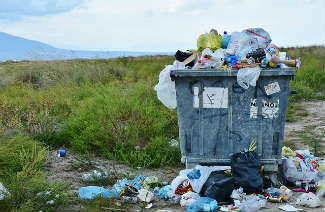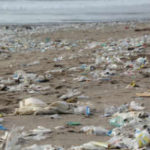Pollution Impacts Us Globally
It is widely known that pollution is bad but many people are not aware just how much pollution impacts our health. One of the most detailed environmental reports was just released by the International Energy Agency, and the results were shocking. Ira Riklis breaks down some of the information we learn from this report in his latest blog post.
In 2015 alone, 9 million premature deaths were attributed to pollution – that’s 16 percent of all deaths worldwide. The worst and deadliest form is air pollution, which causes about 6.5 million premature deaths annually. The most susceptible countries have low to medium income economies and struggle with problems local politicians deem to be more urgent.
Cleaner Air, Longer Life
The New England Journal of Medicine studied the problem and found a strong correlation between exposure to ozone and particulate matter that comprises fog to early deaths. They found that the more smog there is in the environment, the faster people die. Thanks to the Clean Air Act, America’s cities are far cleaner today than they once were, but many areas of the nation still fight air and water pollution problems.
The Weather Channel serves as America’s warning system and works closely with government-funded resources in order to save lives every single day. For years, they have tracked air pollution, and have found that some areas of the country pose a higher risk than others. Cities dotting the prairie, the mountainous and coastal regions of California where populations are highest, the mountainous regions of Colorado and southern Wyoming, the Arizona and Nevada desert, and the North Eastern seaboard all struggle with air pollution.
European Air Pollution
Likewise, European cities also have frequent issues with pollution. The E.U.’s 35 Day Acceptable Limit on Air Pollutants has been exceeded by many cities including:
- Rome
- Budapest
- Berlin
- Brussels
- Lisbon
- Amsterdam
- Paris
- Dublin
- Munich
- Madrid
- Barcelona
- Glasgow
- Stockholm
- Edinburgh
There are no days where high air pollution warnings exist that any living, breathing, being remains unaffected. All life absorbs the pollution. Even on days when the air particulates are below acceptable levels, pollutants are still shortening lives.
Deadliest Forms Of Pollution
More than 40 international experts in Health and the Environment poured over the World Health Organization’s Global Burden of Disease data. They found trends across all populations and were able to estimate mortality rates by their causes. The biggest contributor to air pollution is burning wood, charcoal, and coal in order to produce electricity. They found that the effects of air pollution caused by burning coal, petroleum products, and wood is the deadliest form of pollution. Water pollution due to unhygienic sanitation was the second deadliest problem, followed by workplace pollution in the form of exposure to carcinogens in coal and asbestos or other toxins.
Water
Water pollution led to 1.8 million premature deaths in 2015, while 1 million were caused by workplace pollution. These studies did not account for other types of pollutants, like exposure to chemical fertilizers, fluoride or lead contamination, oil spills or any other forms of pollution. If this data were combined with existing studies, pollution would likely be linked to far more deaths in high-income nations.
Poor Countries Suffer The Effects
Poor countries in the early stages of industrial revolutions struggle most with pollution. A lack of planning and resources means populations live and work in close proximity to refuse dumps and other contaminated areas. Pollution mitigation is far more expensive in the long-term than preventing pollution in the first place. Poor countries need innovative solutions to clean up now before the problems get worse.
It is important for international communities to strictly enforce environmental standards on all nations. Pollution mitigation needs to become a priority to all nations, before the effect on mortality rates worsens.






